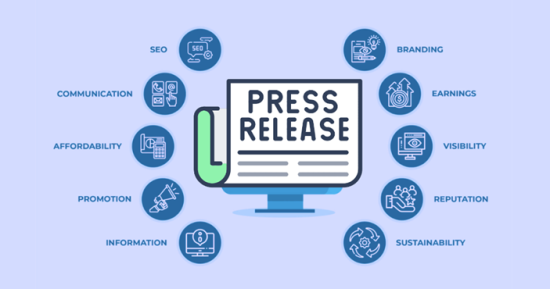
Have you ever wondered what happens to your student loans if something were to happen to you? It’s a topic that many people may not like to think about, but understanding the fate of your student loans after your passing is crucial for protecting your family and estate.
When it comes to student loans, the outcome depends on the type of loan you have. Federal student loans, on average, make up a significant portion of the debt burden carried by many individuals. The good news is that federal student loans are typically discharged upon death, meaning the remaining balance is forgiven. This can provide a sense of relief for your loved ones during an already difficult time. However, is this the case for all types of student loans?
On the other hand, private student loans operate under different rules. Unlike federal loans, private student loans may still need to be repaid, even if you pass away. In such cases, your cosigner or spouse may become responsible for repaying the debt. This can have significant financial implications for your loved ones and may add additional stress during an already challenging period.
So, what happens to your student loans when you die? Are federal loans really discharged, and are private loans an exception to this policy? Can student loan debt be inherited? In this article, we will explore the fate of student loans after your passing, including the discharge policies for federal and private loans, the impact on cosigners, and strategies for protecting your family from the burden of student loan debt.
Understanding the Types of Student Loans
Before delving into what happens to student loans when you die, it’s important to understand the different types of student loans. There are two main categories: federal student loans and private student loans.
Federal student loans are provided by the government and offer various repayment options and loan forgiveness programs. These loans are typically more flexible and come with fixed interest rates. They are accessible to students who demonstrate financial need and have lower interest rates compared to private student loans. Some common types of federal student loans include:
- Direct Subsidized Loans
- Direct Unsubsidized Loans
- PLUS Loans
- Perkins Loans
Private student loans, on the other hand, are obtained from banks, credit unions, or online lenders. They are not backed by the government and typically have higher interest rates. Private student loans may require a cosigner, especially if the borrower has limited credit history or income. Some popular private student loan lenders include Sallie Mae, Discover, and Wells Fargo.
Understanding the distinctions between these loan types is essential for comprehending their respective rules and discharge policies upon the borrower’s death. Federal student loans usually have more favorable options for discharge, while private student loans may still need to be repaid by the cosigner or transferred to the borrower’s estate.
What Happens to Federal Student Loans When You Die?
Federal student loans have specific policies in place for discharge upon the borrower’s death. These policies ensure that no one else, including parents or spouses, becomes responsible for the debt. The exact discharge process may vary depending on the loan servicer, but generally, documentation of the borrower’s death is required. Additionally, Parent PLUS loans, which are federal loans taken out by parents on behalf of their children, can also be discharged upon the parent or child’s death. Understanding these discharge policies is crucial for protecting your family from the burden of student loan debt after your passing.
Federal Loan Discharge Policies
The federal loan discharge policies are designed to alleviate the financial responsibility of the borrower’s family in the event of their death. These policies ensure that the student loan debt is forgiven and not passed on to any other individuals, including parents or spouses. By discharging the loans, the burden of repayment is lifted, providing relief during a difficult time.
Documentation Required for Federal Loan Discharge
When applying for federal loan discharge, certain documentation is usually required to confirm the borrower’s death. This documentation may include a death certificate or other proof of death. It’s important to gather and provide the necessary documentation to the loan servicer promptly to initiate the discharge process.
The Impact on Parent PLUS Loans
Parent PLUS loans, which are federal loans taken out by parents on behalf of their children, can also be discharged in the event of the parent or child’s death. This discharge relieves the parents from the responsibility of repaying the loan, ensuring that they are not held accountable for the student loan debt after their passing. It provides peace of mind and financial protection for parents who have taken out Parent PLUS loans.
Private Student Loans: The Rules Vary by Lender
When it comes to the discharge of private student loans upon death, the rules and policies differ among lenders. It’s essential to understand the terms and conditions outlined in your private student loan agreement to determine what happens to your loans when you die. This includes examining the lender’s discharge policies and any specific requirements or conditions that may impact the discharge process.
Death Discharge Policies Among Top Private Lenders
While some private lenders offer death discharge options for student loans, others may not have specific provisions in place. It is crucial to research and understand the policies of your lender regarding the discharge of private student loans upon death. This information can help you and your family prepare for potential outcomes and navigate the process accordingly.
Terms and Conditions Affecting Discharge Upon Death
Discharge upon death of private student loans may be subject to certain terms and conditions outlined by the lender. These may include requirements such as providing proof of death, submitting necessary documentation, or meeting specific eligibility criteria. Familiarize yourself with these terms and conditions to ensure you are aware of any obligations or steps involved in the discharge process.
Understanding the discharge policies, terms, and conditions of private student loans upon death can help you make informed decisions and plan for the future. Being aware of the variations among lenders ensures that you and your loved ones are prepared for the potential financial implications of private student loan debt in the event of your passing.
What Happens to Student Loans When You Die with a Cosigner?

Risks to Your Cosigner
If you have a cosigner on your student loans, it’s important to understand the potential risks they may face if you pass away. When you die, your cosigner may become responsible for repaying the remaining debt. This can place a significant financial burden on them and affect their creditworthiness. It’s crucial to consider the implications for your cosigner and take steps to protect their financial well-being.
Understanding Cosigner Release Options
To alleviate the responsibility on your cosigner, it’s worth exploring cosigner release options. Cosigner release allows you to remove the cosigner from the loan once you meet certain qualifications, such as making a certain number of on-time payments or meeting credit requirements. By releasing your cosigner, you can provide them with financial relief and ensure that they are no longer obligated to repay the loan in the event of your death.
Changes in Law Protecting Cosigners Post-2018
Since 2018, there have been changes in laws and regulations that provide additional protection for cosigners on student loans. These changes aim to safeguard cosigners from excessive financial burdens and ensure fair treatment. Staying informed about these updates can help you understand the legal rights and obligations of both the borrower and the cosigner. By keeping up with the latest developments, you can make informed decisions and take appropriate measures to protect your cosigner’s interests.
Strategizing Financial Protections for the Student Loan Cosigner

To ensure the financial protection of your cosigner, there are several strategies you can consider. One option is student loan refinancing, which allows you to replace your current loans with a new loan that may offer more favorable terms or the opportunity to remove your cosigner. By refinancing your student loans, you can potentially secure lower interest rates and monthly payments, providing a more manageable financial situation for both you and your cosigner. Additionally, refinancing can allow you to release your cosigner from their obligations, alleviating their potential financial burden.
Another option for protecting your cosigner is using life insurance to cover student debt. By purchasing a life insurance policy with sufficient coverage, you can ensure that your cosigner will be safeguarded financially if you pass away. In the event of your death, the life insurance payout can be used to cover the outstanding student debt, relieving your cosigner of the responsibility. This can provide peace of mind for both you and your cosigner, knowing that the loan will not create a significant financial hardship for them in the future.
Lastly, it is crucial to emphasize the importance of maintaining updated loan documentation. Keeping all relevant loan documents organized and readily accessible can significantly ease the loan discharge process in the event of your death. Key documents may include loan agreements, promissory notes, and any other pertinent paperwork. By having these documents readily available, your cosigner and family members can navigate the discharge process more effectively, ensuring a smoother experience during an already challenging time.
By strategically leveraging student loan refinancing, using life insurance to cover student debt, and maintaining up-to-date loan documentation, you can provide essential financial protections for your cosigner. These measures offer peace of mind for both you and your cosigner, ensuring that the burden of student loan debt does not fall solely on their shoulders in the unfortunate event of your passing.
Navigating PLUS Loans and Endorser Responsibilities After Death
When it comes to PLUS loans, whether they are Parent PLUS loans or grad PLUS loans, it’s important to understand the unique discharge policies and considerations in the event of the borrower’s death. Knowing the options available for discharging these types of loans and being aware of the potential liability of endorsers is crucial.
PLUS Loan Discharge and Endorser Liability
When the primary borrower of a PLUS loan passes away, there are discharge options that can release the endorsers from their responsibilities to repay the loan. This means that endorsers may no longer be liable for the loan debt. However, it’s essential to navigate these matters carefully and ensure that you provide the proper documentation to the loan servicer to facilitate a smooth discharge process.
By understanding the discharge policies for PLUS loans and the potential liability of endorsers, you can take the necessary steps to protect your family and ensure a smooth transition in the event of your passing.
Loan Discharge and Tax Implications
Understanding the Tax Cuts and Jobs Act Impact
When it comes to student loan discharge, it’s essential to be aware of the potential tax implications. The Tax Cuts and Jobs Act, which brought significant changes to the tax code, also impacted the tax treatment of discharged student loan debt. It’s important to understand how these changes may affect your tax obligations.
Under the new rules, student loans that are discharged due to death or disability are generally not considered taxable income. This means that if your student loans are forgiven upon your passing, your estate or your cosigner typically will not have to include the discharged amount as income for tax purposes.
Types of Loan Forgiveness and Associated Taxes

While some situations, such as discharge due to death, are generally exempt from taxes, it’s crucial to remember that not all types of loan forgiveness are treated the same way. Depending on the circumstances, you may still have tax obligations even if your loans are discharged.
For example, if you qualify for Public Service Loan Forgiveness (PSLF) or an income-driven repayment plan, where your remaining loan balance is forgiven after a certain number of qualifying payments, the discharged amount may be subject to income taxes. In this case, you will need to report the forgiven amount as income on your tax return.
It’s important to consult with a tax advisor or professional for personalized guidance based on your specific situation. They can help you understand the tax implications of different types of loan forgiveness and ensure compliance with tax laws.
The Role of Private Student Loans in Debt After Death
Private student loans can significantly impact the burden of debt after death. Unlike federal student loans, which are typically discharged upon the borrower’s death, private student loans may require a different approach. The discharge policies and requirements for private student loans can vary among lenders, making it essential to understand and investigate the specific terms of your loans.
When it comes to private student loans, each lender has its own policies regarding discharge upon the borrower’s death. Some lenders may offer options for death discharge, while others may not. By familiarizing yourself with your lender’s policies, you can better prepare yourself and your loved ones for potential outcomes.
Investigating your private student loan terms is crucial for understanding your obligations and the potential implications for your loved ones after your passing. By reviewing the terms of your loan agreement, you can gain insight into any variations or conditions that may affect the discharge process. This knowledge will empower you to make informed decisions and plan for the financial implications of your private student loans after death.
What if the Borrower or Cosigner Dies After Refinancing?
Refinancing student loans can have significant implications if the borrower or cosigner passes away. One key consideration is how refinancing converts federal loans into private loans, which can affect the discharge and liability policies associated with the loans.
How Refinancing Converts Federal Loans to Private Loans
When you choose to refinance your federal student loans, you are essentially replacing them with a new loan from a private lender. This means that the original federal loans are paid off, and you become responsible for repaying the new private loan.
This process of refinancing effectively converts your federal student loans into private loans, subject to the terms and conditions set by the private lender. As a result, the discharge policies and liability for the loans may change, impacting what happens in the event of the borrower or cosigner’s death.
Policies of Private Refinance Lenders
Private refinance lenders have their own policies regarding what happens to student loan debt after the death of the borrower or cosigner. It’s important to explore and understand these policies when considering refinancing your student loans.
Some private lenders may offer death discharge options, similar to federal loan discharge policies. However, others may not provide the same level of protection and may hold the cosigner or the borrower’s estate liable for the remaining debt.
By researching and comparing the death discharge policies of private refinance lenders, you can make an informed decision on refinancing that aligns with your financial goals and priorities. Understanding the lender’s handling of student loan debt after death is crucial for protecting your cosigner and estate from unnecessary financial burdens.
Protecting Your Estate from Student Loan Debt

Protecting your estate from student loan debt is an important consideration. When planning for the future, it’s crucial to explore strategies that can shield your inheritors from the burden of student debt after your passing.
Ways to Shield Your Inheritors
Proper estate planning is one effective way to protect your estate from student loan debt. By working with a qualified attorney, you can create a comprehensive plan that takes into account your financial situation, including any outstanding student loans. Estate planning measures such as trusts and wills can help ensure that your assets are distributed according to your wishes while minimizing the impact of student debt on your inheritors.
Additionally, asset protection strategies can further safeguard your estate from student loan debt. These strategies can involve legal structures, such as limited liability companies (LLCs) or irrevocable trusts, that help shield your assets from potential creditors, including student loan lenders. By properly structuring your assets, you can create a protective layer that can help mitigate the risk of your inheritors being responsible for your student loans.
Life Insurance as a Safeguard
Life insurance can be a valuable safeguard when it comes to protecting your estate from student loan debt. By purchasing a life insurance policy with sufficient coverage, you can ensure that there are funds available to pay off your student loans upon your passing. This can provide financial security for your inheritors and prevent them from depleting other assets to satisfy the debt.
When considering life insurance as a strategy for debt protection, it’s important to carefully evaluate your needs and consult with a knowledgeable insurance professional. They can help you determine the appropriate coverage amount to adequately cover the outstanding student loan debt. By including life insurance as part of your estate planning, you can provide peace of mind for your inheritors and protect them from the burden of student debt.
How to Report a Student Loan Death to Servicers?
When a borrower passes away, it’s essential to report the death to the student loan servicer. This process involves specific steps to ensure a smooth and timely notification.
Steps to Take When Reporting a Death
If you find yourself in the unfortunate situation of having to report a student loan death to servicers, follow these steps:
- Contact the loan servicer: Reach out to the loan servicer as soon as possible to inform them of the borrower’s passing. Provide the necessary details, such as the borrower’s name, account number, and date of death.
- Submit required documentation: The loan servicer may ask for certain documentation to verify the death and initiate the loan discharge process. This documentation may include a death certificate, obituary, or other official proof of death. Be prepared to provide these documents promptly.
- Follow up with the servicer: Stay in touch with the loan servicer to ensure that all necessary steps are being taken to process the loan discharge. Ask for confirmation that the borrower’s account has been flagged for discharge and inquire about any additional information or forms that may be required.
Documenting Your Communication with Loan Servicers
Throughout the process of reporting a student loan death to servicers, it’s crucial to maintain diligent documentation of all communication. Take the following steps to effectively document your interactions:
- Keep records of all phone calls: Note the date, time, and name of the loan servicer representative you speak with during phone calls. Document any important details discussed during the conversation.
- Save email correspondence: If you communicate with the loan servicer via email, save copies of all email exchanges related to the student loan death reporting process. Ensure that the emails contain relevant details and updates.
- Create a centralized file: Maintain a dedicated file or folder to store all physical and digital documents related to the student loan death and loan discharge. This will make it easier to access and refer to the necessary paperwork.
Properly reporting the student loan death and documenting interactions with the loan servicer can help facilitate the loan discharge process and minimize potential complications.
Practical Tips for Preventing Student Debt Burden on Family Members
As a borrower, protecting your family from the burden of student loan debt is a top priority. There are practical steps you can take to mitigate the impact of student loans on your loved ones in the unfortunate event of your death. By proactively addressing these concerns, you can safeguard your family from unnecessary financial hardship.
Early financial planning is key to preventing student debt burden. Start by creating a comprehensive budget and sticking to it. This will help you manage your finances more effectively and avoid taking on excessive debt. Prioritize saving for emergencies and consider setting up a life insurance policy to cover your outstanding student loan debt. By planning ahead, you can provide your family with the financial security they need.
Exploring loan forgiveness programs is another important strategy. Stay informed about the various federal and state forgiveness programs available to you. These programs may offer relief in specific circumstances such as public service employment or income-driven repayment plans. Understanding your options can help reduce the overall debt and protect your family’s financial well-being.
Finally, staying up-to-date with changes in laws and policies that affect student loan discharge is vital. Be proactive in understanding any updates or modifications to the regulations surrounding student loan forgiveness in the event of death. Stay connected with your loan servicer and seek professional advice if necessary. By staying informed, you can ensure that your family is prepared and protected.
FAQs on What Happens to Student Loans When You Die
What happens if they are federal loans?
Federal student loans are usually discharged upon the borrower’s death, meaning the debt is forgiven, and the borrower’s estate is not responsible for repayment.
What happens if they are private loans?
Private student loans sometimes offer death discharge, so it’s important to check the specific terms of the loan agreement; in some cases, the debt may pass to a co-signer or the borrower’s estate.
What happens if you have a co-signer?
If you have a co-signer on your student loans, they may become responsible for the debt upon your death, depending on the loan agreement and the lender’s policies.
What happens if you are married?
In community property states, your spouse may be responsible for your student loan debt acquired during the marriage. In contrast, in other states, they are typically not accountable unless they co-signed the loan.
What happens if you have a federal Parent PLUS loan?
Federal Parent PLUS loans are typically discharged upon the death of either the parent borrower or the student, and the debt is not transferred to the estate or any other party.








